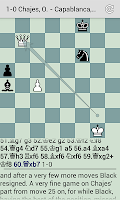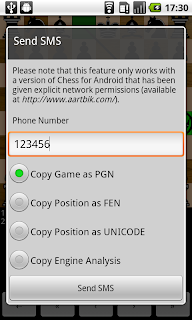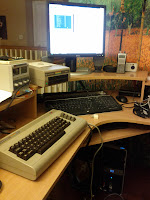Test Runs for the 2013 Tournament
I have completed the initial tests for the 2013 tournament between engines for Android (compiled for ARMv5TE) using Chess for Android on a Nexus 7 (1.3 GHz quad-core Cortex-A9). The qualified and disqualified engines are shown below. Next to follow is a qualification tournament which will place the top 25 engines in six groups, like I did in the 2011 tournament . However, I will wait a few days to see whether engine authors want to appeal the disqualification with an improved binary. Updates of qualified engines are of course also welcome. Qualified: AdroitChess 0.3 Arasan 14.0.1 betsabe-II-130-android-ja BikJump v2.1P (32-bit) cheng3 1.07 JA crafty-235-android-ja Critter 1.6a 32-bit danasah-488-ja Daydreamer 1.75 JA Diablo 0.5.1 DiscoCheck 4.0.1 exchess-054-beta-ja fairymax48l-ab GarboChess 3 (32-bit) Gaviota v0.86 gk-090-ja GNU Che...



